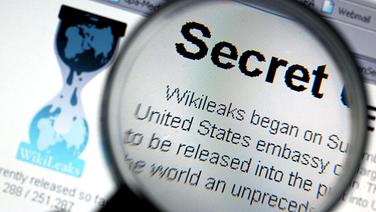Wanted for espionage - the hunt for Wikileaks
EPILOGUE
By the end of April 11, 2019, five people who were accused of working with Wikileaks found themselves in prison. Julian Assange was in Her Majesty’s Prison Belmarsh, a high security men's prison in south-east London. He was given his own cell. In Quito, Ola Bini, the vegetarian from Sweden, was put into a cell with eight other people. There was only one mattress.
* * * * *
At the time of publication, Ola Bini had still not been charged with a crime. There was only a hint made by a prosecutor that Bini allegedly violated the law in connection with an "attack on the integrity of computer systems". In a letter written on June 11, Ecuador's Interior Minister and President wrote that they were concerned with revenge attacks after the cancellation of Assange's asylum and subsquent arrest. It was in connection with this that Bini came to their attention, noting that he had paid the rent for several large servers used by Wikileaks. To this date, no evidence for this or other crimes was presented. His legal team called for the United Nations Working Group on Arbitrary Detention to investigate his ongoing imprisonment without charge.
CENTRO DE DETECTION PROVISIONAL - Ola Bini:
When I was lead into the prison, it was very loud, screaming all over the place - this is the normal background noise here, 24/7. It was crowded, dirty, smelly. I felt panic and extreme anxiety - I HAD TO GET OUT. The rest of the evening is a blur. One prisoner gave me blanket and some cardboard. This was my bed, on the concrete floor. I had a pair of flip-flops as a pillow. It was cold and painful. We were eight people sleeping in that cell.I was scared, overwhelmed and anxious. I was also frustrated. I still didn't know what I had done wrong.
Chelsea Manning, Jeremy Hammond and Joshua Schulte remained in prison. Jacob Appelbaum and Daniel Domscheit-Berg both said they avoid travel to the United States.
On May 9, the UN Rapporteur on Torture, Nils Melzer, who had tried to visit Assange in the Ecuadorian embassy, was finally allowed to see Julian Assange in Belmarsh Prison. Melzer said the Office of the High Commissioner for Human Rights, was accompanied by two medical experts specialized in examining potential victims of torture and other ill-treatment.
On May 23, 42 days after he’d arrived in Belmarsh, Assange was charged with 17 counts of espionage; the Department of Justice argued that his publication of classified materials in 2010 "risked serious harm to United States national security."
On May 31, Nils Melzer published his report, having written to the four states involved with Assange’s case with his conclusions. He said, "In 20 years of work with victims of war, violence and political persecution I have never seen a group of democratic States ganging up to deliberately isolate, demonise and abuse a single individual for such a long time and with so little regard for human dignity and the rule of law law." The UK foreign minister Jeremy Hunt responded right away:
This is wrong. Assange chose to hide in the embassy and was always free to leave and face justice. The UN Special Rapporteur should allow British courts to make their judgements without his interference or inflammatory accusations.
Nils Melzer replied 107 minutes later:
With all due respect, Sir: Mr Assange was about as "free to leave" as a someone sitting on a rubberboat in a sharkpool. As detailed in my formal letter to you, so far, UK courts have not shown the impartiality and objectivity required by the rule of law.
Two days later, Hunt appeared on American television saying that he would not block the extradition of Assange to the United States on espionage charges.
On June 13, the UK Home Secretary Sajid Javid said that he had already signed an extradition request from the US government for Assange.
Editorial consultant: Jenny Morgan
Mitarbeit: Shannon Cunningham
Weitere Informationen
- Teil 1: Arrests in London
- Teil 2: Arrests in Quito
- Teil 3: Epilogue


